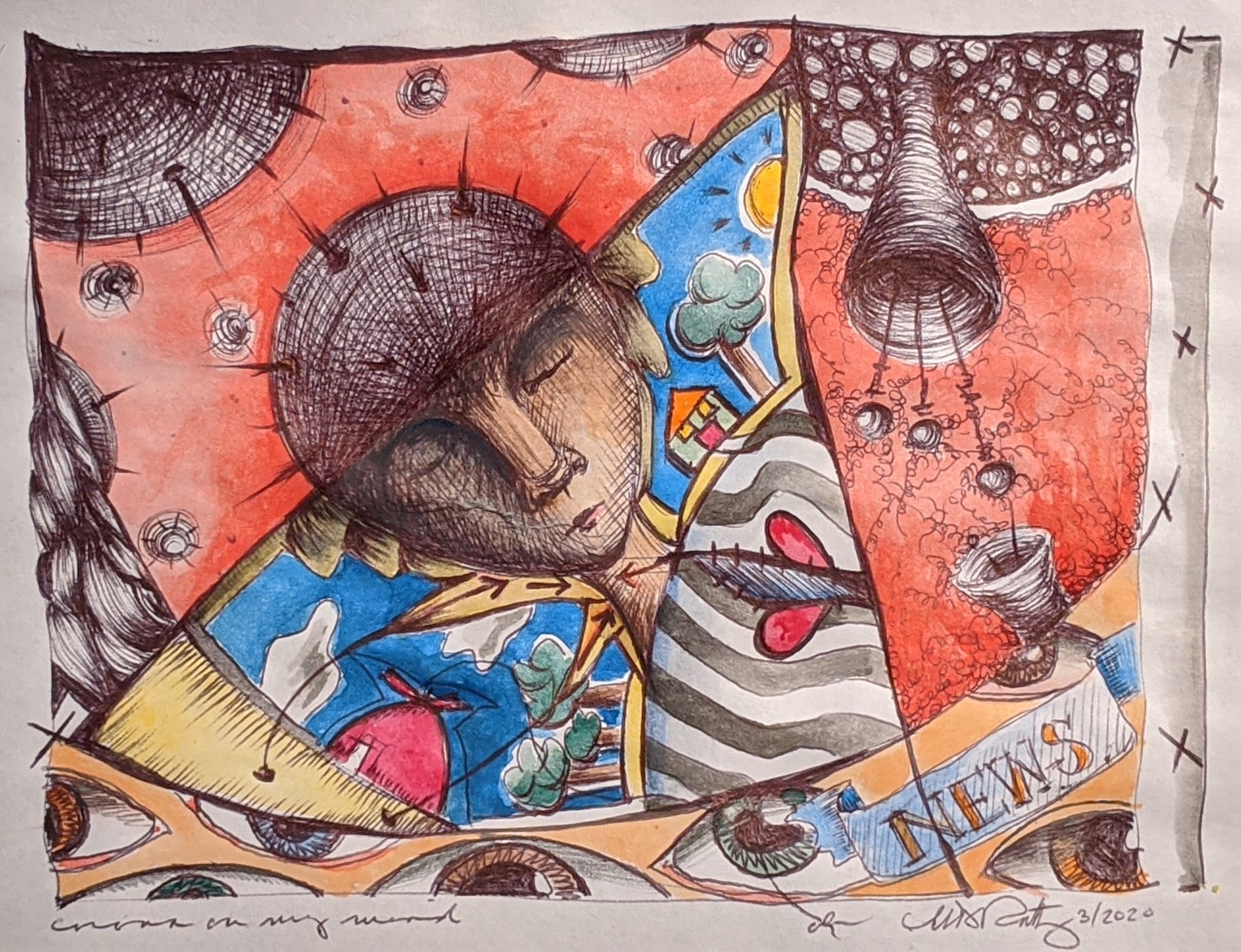September 24, 2020
Art therapy is a mental health profession that enriches the lives of individuals, families, and communities through active art-making, creative process, applied psychological theory, and human experience within a psychotherapeutic relationship. Art therapists are clinicians with Masters-level degrees or higher, trained in art and therapy.
During the Coronavirus pandemic, art therapists have been serving as frontline “essential workers,” according to findings from the American Art Therapy Association’s May 2020 online survey. Half (53.1%) of art therapists surveyed said that they are continuing to go to work in person, with many working in psychiatric hospital settings or outpatient mental health clinics. In addition, two thirds (69.9%) reported that they are also working from home at least some of the time during the pandemic, with many having transitioned to teletherapy via video platforms or telephone.
In the survey, we asked respondents: “As an art therapist, how would you describe to someone unfamiliar with the profession why art therapy is uniquely suited to support mental health during this pandemic?” The survey takers explained that art therapy is particularly effective during times of crisis, especially in coping with isolation, changes in circumstance, trauma, and grief.
Research supports their assessment: for example, art therapy helps people feel more in control of their own lives, and helps relieve anxiety and depression, including among cancer patients, tuberculosis patients in isolation, and military veterans with PTSD. In addition, art therapy assists in managing pain by moving mental focus away from the painful stimulus.
To put this in context, art therapists also reported that they were hearing about high levels of anxiety, stress and worries from clients. Nearly all art therapists (92.0%) surveyed reported that their clients were experiencing anxiety due to isolation during the Coronavirus pandemic, and two in three (62.7%) said that their clients raised these concerns frequently. In addition, clients were particularly worried about their existing medical illnesses or those of their loved ones: four in five (80.7%) art therapists reported it was discussed in sessions.
Art Therapy is Uniquely Suited to Support Mental Health, According to Art Therapists
We would like to highlight a handful of comments shared by survey takers about their own profession. Please find additional comments in the Appendix of the Coronavirus pandemic survey findings report.

“Corona on My Mind” by Michele D. Rattigan, MA, ATR-BC, NCC, LPC, Clinical Associate Professor, Drexel University College of Nursing & Health Professions, Art Therapy & Counseling Graduate Program.
“The piece started as a doodle that morphed into an exploration of dualities: inside/outside, micro/macro, and individual/collective concerns regarding the pandemic and how our lives will forever be changed. There’s a lot on my mind. Corona is on my mind.”
“When dealing with new situations we have to create new responses, whether this is around finding solutions or creating new ways to synthesize our experience. This notion of creativity is at the core of art therapy ethos. For many there are no words that can encapsulate their experience at the minute, so being given the chance to make and create around this new experience not only helps to gain an emotional understanding of what is happening, but also returns power to the maker.”
“Most people are experiencing a collective trauma/loss of normal at this point during the pandemic. To process a trauma effectively, a “bottom up” neurological approach is most effective. The higher cognitive processes of the brain don’t function as well during a trauma. Art therapy and other creative arts lend themselves to expressing, incorporating, and then fully processing the material to heal.”
“Art therapy is perhaps more accessible to clients as it can help to focus and process feelings which one cannot put into words. Sometimes the creative process can help distance oneself from overwhelming thoughts and emotions which appear and dominate the thought process. Art making is affordable and sometimes, extremely enjoyable. It can offer moments of relaxation and can offer a safe place to imagine and consider positive alternatives to the very negative Coronavirus time that we are all having.”
“Using the art media to give voice to thoughts and feelings is especially helpful at this time, when so many feelings arise due to the unpredictability of our world currently. Art offers a safe arena for exploring feelings, expressing them, working on self-regulation, providing soothing moments through the physical relationship with the art materials, and it also aids with insight—which then leads to post-traumatic growth.”
“Art therapy is a non-threatening way to treat trauma since it works on a pre-verbal level; art making can alleviate symptoms of digital overload through focusing on a specific task using one’s hands.”
“Art therapy can often express abstract ideas. In this time of uncertainty, little if any structure, loss of the familiar, isolation, art therapy can empower expression of this and other related issues that may be difficult to verbalize.”
“Pictures are worth a thousand words. While my talk therapy colleagues are continuing to process with patients on their issues, art therapy counteracts as a safe place for them to vent and unload issues that talking doesn’t cover. On the other hand, art therapy was a great place for my patients to stop verbalizing issues that are very hard to keep talking about. Hands-on directives are a great way to release, redirect my patients from negativity and feel successful which is positive. Art therapy is one of the highest rating treatments on patient satisfaction surveys at my facility.”
“Frequently words are difficult to express the amount of deep effects and grief people are experiencing during the current confinement. Art is a way to discharge unprecedented levels of chaotic feelings and reduce anxiety around the sense of helplessness.”
623 art therapy professionals, students and educators participated in the online survey in May 2020. Download the complete report: “Art Therapy During A Mental Health Crisis: Coronavirus Pandemic Impact Report.”
